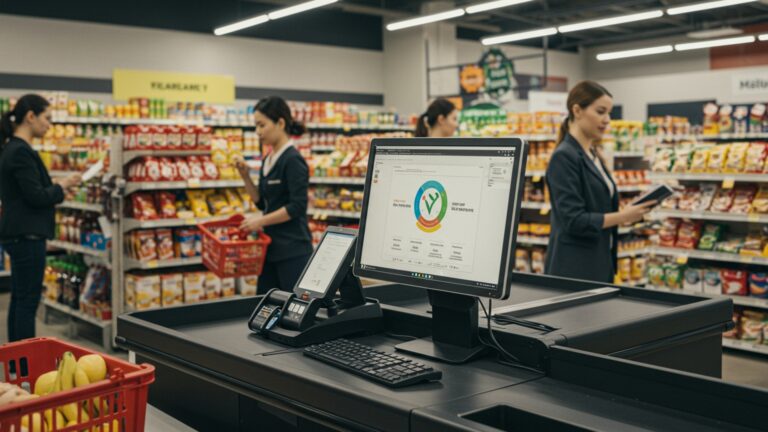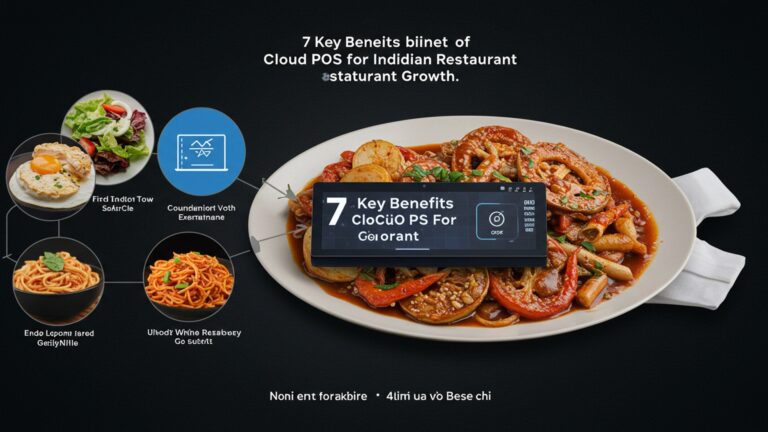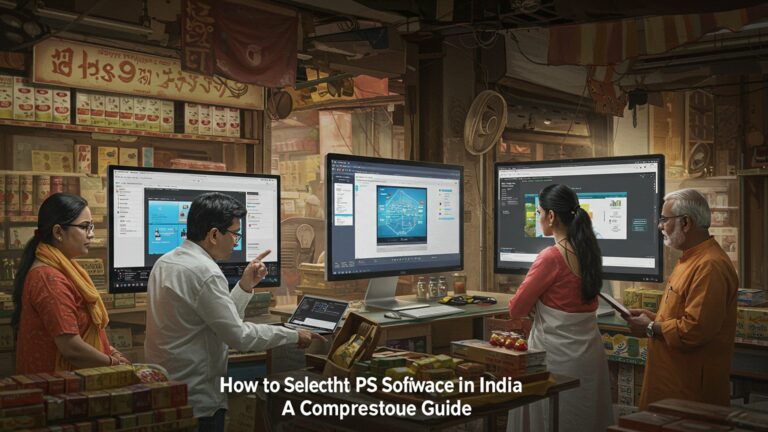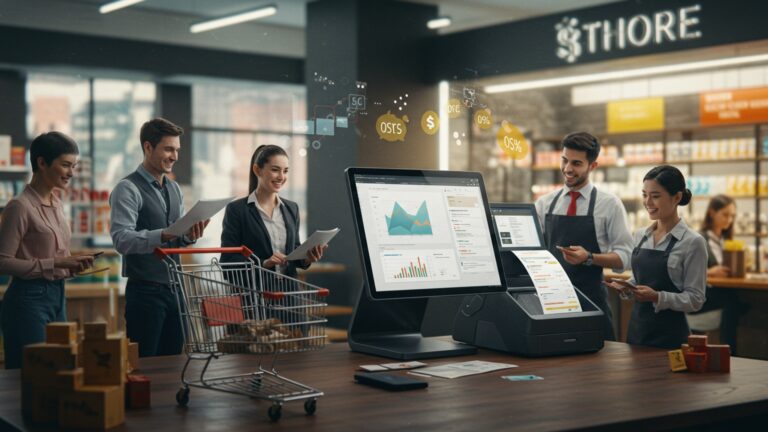How to Leverage Cloud Based POS Software for Scalable Business Growth
Scaling a business in today’s hyper-connected market often bottlenecks at outdated transaction systems, hindering the agility required for rapid expansion and omnichannel presence. Traditional point-of-sale setups struggle to integrate seamlessly with e-commerce platforms, manage diverse inventory across multiple locations, or provide real-time performance analytics crucial for informed decision-making. Embracing cloud based POS software fundamentally shifts this paradigm, offering a unified, accessible ecosystem that transcends physical limitations. This innovative technology empowers businesses to centralize sales, track inventory with precision. examine customer data from any internet-enabled device, fostering unparalleled operational efficiency and enabling robust, scalable growth without the burdensome infrastructure costs or geographical constraints of legacy systems.
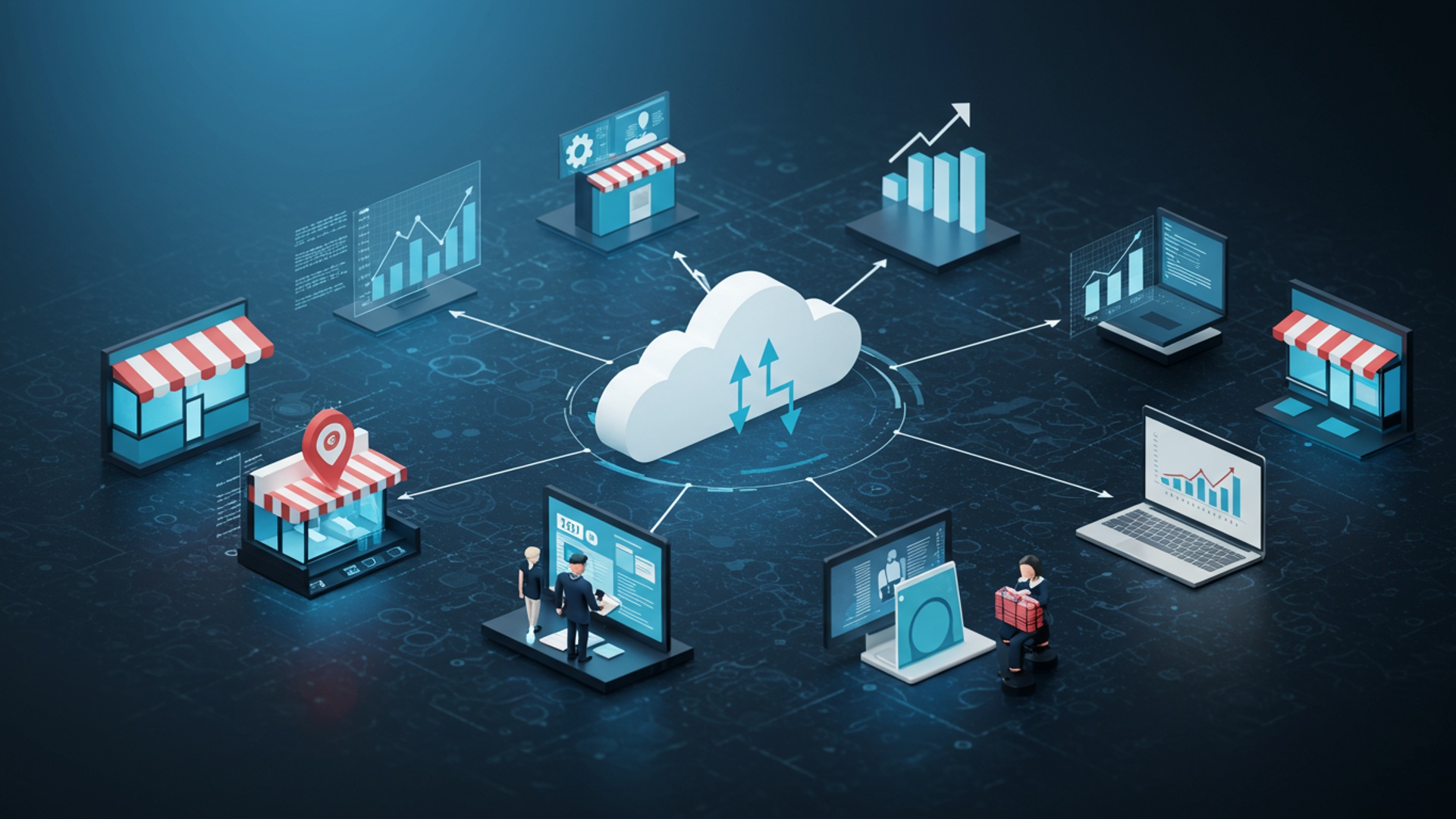
Understanding Cloud-Based POS Software
In today’s rapidly evolving business landscape, the efficiency and adaptability of your operational tools are paramount. At the heart of many successful modern businesses lies a robust Point of Sale (POS) system. Traditionally, POS systems were on-premise, requiring dedicated hardware, local servers. manual updates. But, the advent of cloud technology has revolutionized this, giving rise to cloud based POS software.
So, what exactly is cloud based POS software? Simply put, it’s a point of sale system where the software and data are hosted on remote servers, accessible via the internet. Instead of being installed directly on your computer or server, the application runs on the vendor’s cloud infrastructure. you access it through a web browser or a dedicated app on various devices like tablets, smartphones, or traditional terminals. This model operates on a subscription basis, much like other Software-as-a-Service (SaaS) offerings.
Key differences from traditional POS include:
- Data Storage
- Accessibility
- Maintenance
- Cost Structure
Cloud POS stores data securely in the cloud, while traditional POS keeps it on local servers.
Cloud POS offers anytime, anywhere access from any internet-connected device, whereas traditional POS is typically restricted to the physical location.
Cloud POS vendors handle all software updates, security patches. server maintenance. Traditional systems require in-house IT support or external contractors.
Cloud POS typically involves a lower upfront cost and recurring subscription fees (OpEx). Traditional POS demands significant upfront investment in hardware and software licenses (CapEx).
This shift from a capital expenditure model to an operational expenditure model, combined with unparalleled flexibility, makes cloud based POS software a transformative tool for businesses aiming for sustainable growth.
The Scalability Advantage: How Cloud POS Fuels Growth
For any business with aspirations of expansion, scalability is a non-negotiable factor. Cloud based POS software is inherently designed with scalability in mind, offering distinct advantages that traditional systems simply cannot match.
- Unmatched Flexibility and Agility
- Cost-Efficiency for Expansion
- Real-Time Data Accessibility and Mobility
- Enhanced Data Security and Backup
- Automatic Updates and Continuous Innovation
- Seamless Integration Capabilities
Imagine needing to open a new store location or add more sales terminals during a peak season. With a traditional POS, this involves purchasing new hardware, installing software, configuring networks. potentially hiring IT staff. A cloud based POS software system allows you to add new terminals or even entire locations with remarkable ease. You simply need an internet-connected device (tablet, smartphone, or PC) and to log in. This agility means you can respond to market demands and growth opportunities almost instantly, without significant capital outlay or operational bottlenecks.
One of the most compelling aspects of cloud POS for scalability is its cost structure. Instead of hefty upfront investments in servers and licensed software, you pay a predictable monthly or annual subscription fee. As your business grows, you can often upgrade your plan or add more user licenses without needing to overhaul your entire infrastructure. This transforms a large capital expenditure into a manageable operational expense, freeing up capital that can be reinvested into other growth initiatives like marketing, product development, or staffing.
Growth often means managing more moving parts. With cloud based POS software, all your sales, inventory. customer data are stored centrally in the cloud. This means you, or any authorized manager, can access real-time insights from anywhere, at any time, on any device. Whether you’re overseeing multiple locations from your office, checking sales performance from home, or monitoring inventory levels while traveling, this mobility is crucial for informed decision-making and efficient management across an expanding enterprise.
As businesses grow, so does the volume and sensitivity of their data. Protecting this data becomes increasingly complex. Cloud POS providers invest heavily in enterprise-grade security measures, including data encryption, secure servers. robust firewalls, which would be prohibitively expensive for most small to medium businesses to implement on their own. Moreover, automatic data backups ensure that even in the event of a local hardware failure or disaster, your critical business data is safe and easily restorable, minimizing downtime and protecting your growth trajectory.
Unlike traditional systems that require manual updates or expensive upgrades, cloud based POS software receives automatic updates from the vendor. This means your system is always running the latest version, benefiting from new features, security enhancements. performance improvements without any effort on your part. This continuous innovation ensures your business always has access to cutting-edge tools that support evolving operational needs and market trends, keeping you competitive as you scale.
A growing business often relies on a suite of integrated software solutions – e-commerce platforms, accounting software, CRM systems, loyalty programs. more. A modern cloud based POS software is designed with open APIs (Application Programming Interfaces) to easily integrate with these other platforms. This creates a unified ecosystem where data flows seamlessly between systems, automating workflows, reducing manual errors. providing a holistic view of your business. For instance, a sale processed in-store can automatically update inventory in your e-commerce system and sync with your accounting software, streamlining operations as you expand.
Essential Features of Cloud Based POS Software for Business Expansion
To truly leverage cloud based POS software for scalable growth, businesses must look beyond basic transaction processing and identify features that empower strategic decision-making and operational efficiency.
- Advanced Inventory Management
- Comprehensive Customer Relationship Management (CRM)
- Powerful Sales Reporting and Analytics
- Efficient Employee Management
- Omnichannel Capabilities
- Multi-Location Management
Accurate inventory is the backbone of retail and restaurant businesses. A robust cloud POS offers real-time inventory tracking across multiple locations, automated reorder points, vendor management. even predictive analytics to forecast demand. This ensures you always have popular items in stock, minimize waste. optimize purchasing, which is critical when managing an expanding product line or multiple store inventories.
As you grow, maintaining personalized customer relationships becomes challenging. Integrated CRM features in cloud based POS software allow you to build detailed customer profiles, track purchase history, manage loyalty programs. segment customers for targeted marketing campaigns. Understanding your customers better leads to increased retention and revenue, vital for sustained growth.
Growth requires insights. Cloud POS provides customizable dashboards and detailed reports on sales trends, product performance, employee efficiency, peak hours. more. Being able to visualize this data across all locations helps identify top-performing products, grasp regional differences, optimize staffing schedules. make data-driven decisions that fuel expansion. For example, a restaurant chain can identify which menu items perform best in specific locations, informing future menu development or promotional strategies.
With more locations and staff, managing your team can become complex. Cloud POS offers features like time tracking, customizable user permissions, individual sales performance tracking. integration with payroll systems. This streamlines HR functions, ensures accountability. helps identify top performers, supporting a growing workforce.
Modern consumers expect a seamless experience across all touchpoints – physical store, online shop, mobile app. A strong cloud based POS software bridges the gap between your online and offline sales channels. This means unified inventory, consistent pricing, synchronized customer data. the ability to offer services like “buy online, pick up in-store” (BOPIS), which is crucial for meeting evolving customer expectations and expanding market reach.
This is perhaps one of the most significant features for scalable growth. A cloud POS system allows you to manage all your business locations from a single, centralized dashboard. You can set uniform pricing, transfer inventory between stores, view consolidated sales reports. manage employee access across your entire enterprise. This centralized control ensures brand consistency and operational efficiency as you add new branches.
Real-World Applications and Use Cases
The versatility of cloud based POS software makes it an invaluable asset across a diverse range of industries, enabling businesses to scale efficiently and effectively.
- Retail Chains and Boutiques
- Restaurants and Cafes
- Service Businesses (Salons, Spas, Gyms)
- Pop-up Shops and Mobile Businesses
- E-commerce Integration for Holistic Growth
Consider a local boutique that wants to expand from one to five locations. With a traditional POS, this would entail massive hardware purchases and IT overhead. Using cloud based POS software, they can simply equip each new store with tablets or existing computers, install the app. connect to the internet. Inventory is automatically synchronized across all stores, allowing customers to check stock availability at other branches. Consolidated reporting gives the owner a real-time overview of sales performance across the entire chain, helping them identify top-selling products and optimize stock transfers. A prominent example might be a fast-growing apparel brand using Square or Shopify POS to manage their brick-and-mortar stores alongside their booming e-commerce presence.
A popular local cafe aiming to open a second branch and launch a delivery service can significantly benefit. A cloud POS can handle table management, online ordering integration (e. g. , with DoorDash or Uber Eats). even kitchen display systems (KDS) for streamlined order fulfillment. Ingredient tracking helps manage costs and reduce waste across multiple kitchens. Toast POS, for instance, is widely used in the restaurant industry for its robust cloud-based features that support everything from small cafes to multi-location restaurant groups.
A salon looking to expand its services to include mobile appointments or add new stylists can leverage cloud POS for appointment scheduling, client history management. service package sales. Stylists can access client notes and preferences from their mobile devices, ensuring personalized service whether in the salon or on location. Vagaro is a great example of a cloud-based system tailored for the beauty and wellness industry, enabling easy scaling of services and locations.
Entrepreneurs running food trucks, seasonal kiosks, or pop-up retail events find cloud POS indispensable. The low-cost setup, portability. ability to process sales immediately using just a tablet and a mobile card reader offer unparalleled flexibility. This allows them to test new markets or participate in various events without heavy investment, making scaling into new ventures incredibly easy. Systems like Lightspeed Retail or Vend are often favored by such agile businesses.
Many businesses start online and then open physical stores, or vice-versa. Cloud based POS software with strong e-commerce integration ensures that inventory, customer data. sales figures are synchronized across both channels. This unified data prevents overselling, provides a complete view of customer purchasing habits (online and offline). facilitates omnichannel strategies crucial for modern business growth. For instance, a brand using Shopify for its online store can seamlessly integrate Shopify POS for its physical retail locations, creating a single, cohesive ecosystem.
Choosing the Right Cloud Based POS Software: Actionable Steps
Selecting the ideal cloud based POS software is a critical decision that will impact your business’s ability to scale. Here are actionable steps to guide your choice:
- Assess Your Specific Business Needs and Growth Plans
- Evaluate Core Feature Set and Scalability
- Review Integration Ecosystem
- Prioritize Security and Compliance
- Evaluate Support and Training
- interpret the Pricing Model
- Research Vendor Reputation and Longevity
Before looking at software, clearly define your current operational requirements and your projected growth trajectory. Do you plan to open more locations? Launch an e-commerce store? Introduce loyalty programs? Your POS should support these future ambitions. List industry-specific needs (e. g. , table management for restaurants, appointment booking for salons, detailed inventory for specialty retail).
Does the software offer the essential features discussed earlier (advanced inventory, CRM, robust reporting, multi-location management, omnichannel capabilities)? Critically, can it easily accommodate more users, more terminals. more locations without requiring a complete system overhaul? Look for flexibility in its architecture.
Investigate the software’s ability to integrate with your existing or planned business tools, such as accounting software (QuickBooks, Xero), e-commerce platforms (Shopify, WooCommerce), marketing automation tools. payment processors. Seamless integration minimizes manual data entry and ensures data consistency across your tech stack.
Ensure the vendor adheres to industry-standard security protocols (e. g. , PCI DSS compliance for payment processing) and offers features like data encryption and multi-factor authentication. comprehend their data backup and disaster recovery policies. Your customer and sales data are invaluable assets that need robust protection.
What kind of customer support is offered (24/7, phone, email, chat)? Is there a comprehensive knowledge base or training resources available? As your business grows and new staff come on board, accessible and effective support will be crucial for smooth operations.
Beyond the advertised monthly fee, inquire about setup costs, transaction fees, hardware costs. any additional charges for specific features or integrations. Look for transparent pricing that scales predictably with your usage and growth.
Read reviews, check case studies. assess the vendor’s track record and financial stability. A reliable partner is essential for long-term business growth. Consider requesting demos and taking advantage of free trials to test the system in your own environment before committing.
Implementing and Optimizing Your Cloud-Based POS System
Once you’ve chosen your cloud based POS software, successful implementation and ongoing optimization are key to maximizing its benefits for scalable growth.
- Strategic Data Migration Planning
- Comprehensive Staff Training
- Customization and Workflow Adaptation
- Leveraging Analytics for Informed Decisions
- Embracing New Features and Updates
- Maintain Security Best Practices
Carefully plan the migration of your existing data, including product inventories, customer lists. historical sales data, into the new system. Work closely with your vendor’s support team or an experienced consultant to ensure a smooth transition with minimal disruption to operations. Validate all imported data for accuracy.
Invest in thorough training for all employees who will interact with the new POS, from cashiers to managers. Ensure they comprehend not only how to process sales but also how to leverage features like inventory lookups, customer profiles. reporting. Hands-on training and ongoing support will build confidence and ensure efficient use of the system. As you expand, new hires will also need structured training.
Tailor the POS settings, reports. user permissions to align with your specific business workflows. Automate routine tasks where possible. While the software offers general functionality, optimizing it for your unique operations will yield the greatest efficiencies. For example, customize your sales screen layout for faster transaction processing.
Don’t just collect data; examine it. Regularly review the sales reports, inventory insights. customer data generated by your cloud based POS software. Use these insights to make informed business decisions: optimize stock levels, identify best-selling products or services, pinpoint underperforming areas. refine marketing strategies. This continuous feedback loop is crucial for guiding scalable growth.
Since cloud POS systems receive automatic updates, stay informed about new features and functionalities released by your vendor. Periodically review how these new capabilities could further enhance your operations, improve customer experience, or support your growth initiatives. For example, a new integration with a popular payment method could expand your customer base.
While the vendor handles core security, your team plays a role. Enforce strong password policies, enable multi-factor authentication for all users. educate staff on phishing scams and data protection. Regularly review user access permissions, especially as employees join or leave, to maintain a secure environment.
Cloud-Based POS vs. On-Premise POS: A Comparative Overview
Understanding the fundamental differences between cloud-based and traditional on-premise POS systems is crucial for any business owner planning for growth. This comparison highlights why cloud based POS software is often the superior choice for scalability.
| Feature/Aspect | Cloud-Based POS Software | On-Premise POS System |
|---|---|---|
| Initial Cost | Low (subscription-based, minimal hardware often required) | High (significant upfront investment in hardware, software licenses, servers) |
| Ongoing Costs | Predictable monthly/annual subscription fees (OpEx) | Maintenance, IT support, manual upgrades, potential hardware replacements (CapEx & OpEx) |
| Data Storage | Securely hosted on remote servers by vendor | Stored on local servers within your business premises |
| Accessibility | Anywhere, anytime via internet-connected devices (laptops, tablets, smartphones) | Typically limited to the physical location where servers are installed |
| Scalability | Highly scalable; easy to add users, terminals, or locations quickly without major infrastructure changes | Limited scalability; adding capacity often requires significant hardware upgrades and IT investment |
| Updates & Maintenance | Automatic, seamless updates and maintenance handled by the vendor | Manual updates, patches. maintenance required, often needing IT personnel or downtime |
| Data Security | Enterprise-grade security, regular backups. disaster recovery managed by vendor | Security depends entirely on in-house implementation; requires dedicated resources for backups and protection |
| Integration | Designed for easy integration with various third-party apps (e-commerce, accounting, CRM) | Integration can be complex, costly. may require custom development |
| IT Management | Minimal IT involvement; vendor manages infrastructure and software | Requires dedicated IT staff or external support for installation, maintenance. troubleshooting |
As this table illustrates, while on-premise solutions offer more control over data and customization, the benefits of flexibility, lower total cost of ownership. ease of management offered by cloud based POS software make it the ideal platform for businesses focused on aggressive, scalable growth in today’s dynamic market.
Conclusion
Embracing cloud-based POS software isn’t merely an upgrade; it’s a strategic pivot towards undeniable business scalability and resilience. The real power lies in its ability to centralize data, offering real-time insights that were once exclusive to enterprise-level operations. From my own experience advising small retail ventures, the most transformative step is often realizing how a cloud system can instantly replicate a successful sales process across new locations or seamlessly integrate with e-commerce, a critical advantage in our current omnichannel retail landscape. Your actionable next step is clear: meticulously evaluate your current operational bottlenecks and then pinpoint how a robust cloud POS, perhaps one leveraging emerging AI for predictive inventory, can directly address them. Don’t just adopt technology; leverage it as a competitive edge. This isn’t about simply processing transactions; it’s about building an agile, data-driven foundation that empowers you to adapt to market shifts, like the recent rapid acceleration of contactless payments. Ultimately, by investing in cloud POS, you’re not just buying software; you’re investing in a future where your business isn’t just surviving. powerfully expanding.
More Articles
How to Choose the Best Cloud Based POS Software for Your Growing Business
Your Ultimate Guide How to Select the Right POS Software for Small Businesses
Boost Your Retail Business How to Master POS Software for Seamless Management
Master Android POS Software How to Transform Your Mobile Device into a Sales Hub
Learn How to Streamline Billing and POS Software for Seamless Business Operations
FAQs
What exactly is cloud POS. why should a growing business care?
Cloud POS (Point of Sale) software runs online, storing your data in the cloud instead of on local servers. For a growing business, this means you can access your sales, inventory. customer data from anywhere, on any device. It’s super flexible, making it easy to add new registers, locations, or even just check in on your business from home without needing a dedicated IT team on-site.
How does cloud POS directly help my business scale up?
Cloud POS helps you scale by offering built-in flexibility. Need to open a new store? Just add another terminal to your system, no complex server setup required. It centralizes all your data – sales, inventory, customers – across all locations, giving you a unified view. This makes managing multiple outlets much simpler and provides consistent data for better, faster decision-making as you grow.
Can I manage inventory and sales across multiple store locations with this kind of system?
Absolutely! That’s one of its biggest strengths. Cloud POS allows for real-time inventory tracking across all your locations. You can see what’s in stock where, transfer items between stores. manage pricing centrally. Sales data from every register, whether physical or online, is consolidated, giving you a complete, up-to-the-minute picture of your entire operation.
What happens to my business if the internet connection drops?
Good question! Most modern cloud POS systems come with an ‘offline mode’ capability. This means you can continue to process sales, accept payments (though some payment types might require a connection). manage your basic operations even without internet. Once the connection is restored, all your transactions automatically sync back to the cloud, ensuring no data is lost.
Is my sensitive business and customer data safe in the cloud?
Reputable cloud POS providers invest heavily in security measures, often more than a small business could afford for an on-premise system. They use encryption, secure servers, regular backups. comply with industry standards to protect your data. While no system is 100% foolproof, cloud providers generally offer robust security protocols to keep your details safe.
How does cloud POS improve the customer experience?
It enhances customer experience in several ways. You get faster checkout times thanks to efficient processing, access to customer purchase history for personalized recommendations. the ability to offer loyalty programs seamlessly across all channels. It can also support omnichannel strategies, letting customers buy online and pick up in-store, or return items purchased at one location to another, creating a smoother journey.
Are there significant cost benefits for growing businesses compared to traditional POS?
Definitely. Cloud POS typically operates on a subscription model, which means lower upfront costs compared to buying expensive hardware and server infrastructure for traditional systems. You also save on IT maintenance, upgrades. support, as these are usually included in your subscription. This predictable monthly expense makes budgeting easier for a growing business, freeing up capital for other investments.

